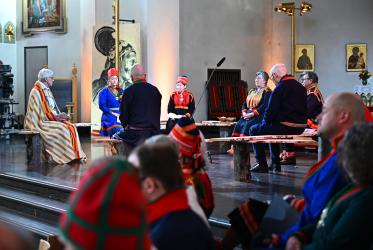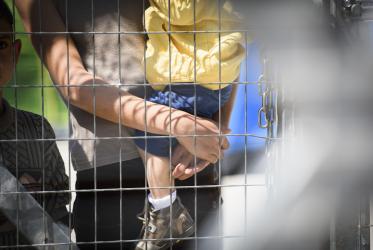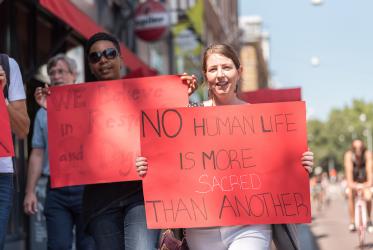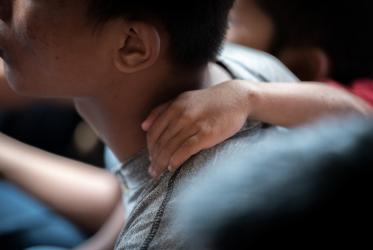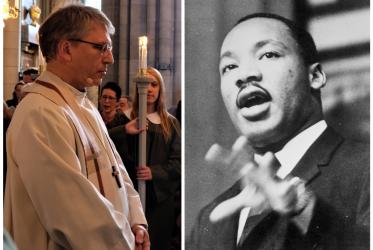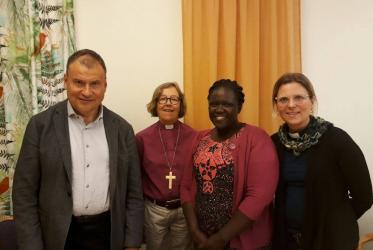Displaying 1 - 20 of 30
27 October 2022
Church of Sweden publicly apologises for abuse of Sámi people
26 November 2021
Nordic churches: “take our human responsibility”
12 March 2020
WCC Executive Committee envisions future for one ecumenical movement
08 November 2018
WCC executive committee tackles public issues
07 November 2018
WCC encourages churches’ work with migrants, refugees
07 November 2018
WCC greets new leadership of ACT Alliance
31 October 2018
Nordic churches embrace 'The Gift of Being'
15 September 2017
WCC/UN conference calls for coordinated action on refugee crisis
20 January 2016
Consultation considers right to food in context of climate change
15 December 2015
Land rights focus of panel discussion
17 November 2015
